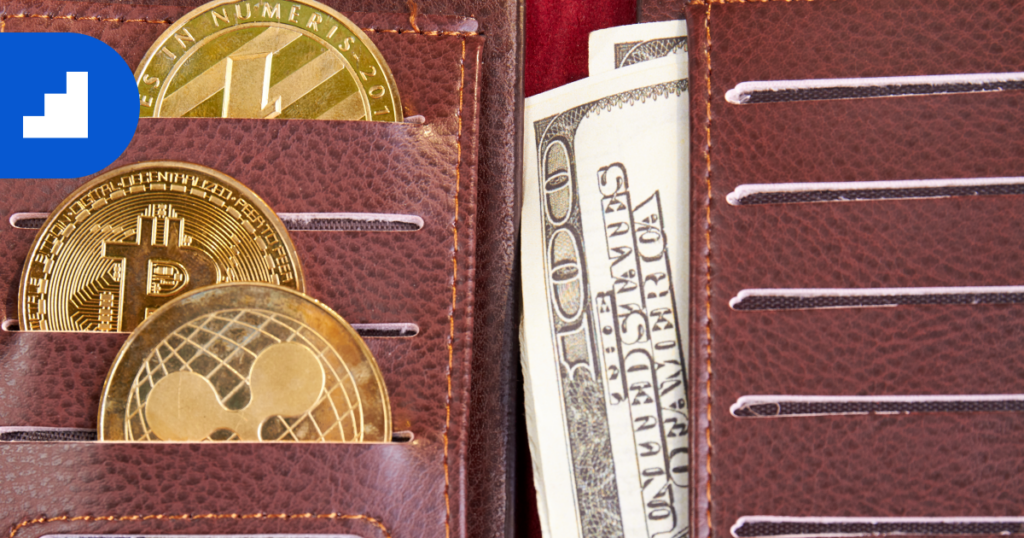
Understanding Blockchain Wallets
Traditionally, wallets have been physical or digital containers for storing currencies, whether they be cash, credit cards, or digital tokens. With the advent of blockchain, wallets have evolved into digital entities that store cryptographic keys, enabling users to access and manage their digital assets securely. Unlike traditional bank accounts, blockchain wallets provide users with full control over their funds without the need for intermediaries.
BTC Wallet: Securing Your Bitcoin Assets
With the rising popularity of Bitcoin (BTC) and other cryptocurrencies, BTC wallets play a crucial role in safeguarding digital assets. Blockchain technology underpins BTC wallets, ensuring secure storage and seamless transactions. Key features of BTC wallet include:
⦁ Private Key Management: BTC wallets store private keys securely, allowing users full control over their Bitcoin holdings.
⦁ Multi-Signature Support: Some BTC wallets offer multi-signature functionality, requiring multiple private keys to authorize transactions, enhancing security.
⦁ Compatibility: BTC wallets are compatible with various devices and platforms, including desktop, mobile, and hardware wallets, providing flexibility and convenience.
⦁ Transaction Tracking: BTC wallets enable users to monitor their transaction history and track the movement of their Bitcoin assets on the blockchain.
⦁ Integration with Exchanges: Many BTC wallets integrate with cryptocurrency exchanges, enabling users to seamlessly buy, sell, and trade Bitcoin within the wallet interface.
As the cornerstone of the cryptocurrency ecosystem, BTC wallets continue to evolve to meet the needs of users, offering advanced features and robust security measures to protect digital assets.
Enhanced Security
One of the most significant advantages of blockchain wallets is enhanced security. By leveraging cryptographic principles, these wallets provide robust protection against unauthorized access and fraudulent activities. Each transaction is verified by network participants and recorded on a distributed ledger, making it virtually immutable. This decentralized nature significantly reduces the risk of hacking and fraud compared to centralized systems.
Interoperability and Accessibility
Blockchain technology fosters interoperability, enabling wallets to interact seamlessly with various blockchain networks and assets. This interoperability paves the way for cross-border transactions, financial inclusion, and broader access to financial services. With blockchain wallets, individuals worldwide can participate in the global economy without the barriers imposed by traditional banking systems.
Empowering Financial Inclusion
For millions of people worldwide who lack access to traditional banking services, blockchain wallets offer a lifeline. By providing a secure and accessible means of storing and transferring value, blockchain technology empowers the unbanked and underbanked populations. This inclusivity has the potential to drive economic growth, reduce poverty, and foster financial independence in underserved communities.

Innovations in Wallet Design
As blockchain technology matures, we are witnessing innovations in wallet design that cater to diverse user needs. From hardware wallets for enhanced security to mobile wallets for convenient access, the market is brimming with options. Moreover, advancements such as multi-signature wallets, which require multiple private keys to authorize transactions, further bolster security and mitigate risks.
Smart Contract Integration
Smart contracts, self-executing contracts with predefined conditions written in code, are revolutionizing the way transactions are conducted on blockchain networks. Blockchain wallets equipped with smart contract functionality enable a myriad of use cases, including decentralized finance (DeFi), tokenization of assets, and automated payments. These capabilities open up a world of possibilities for frictionless and programmable financial interactions.
The Evolution of Identity Management
Identity management is another area ripe for disruption by blockchain technology. Traditional methods of identity verification often suffer from inefficiencies, vulnerabilities, and privacy concerns. Blockchain-based identity solutions offer a compelling alternative by providing secure, tamper-proof identity verification. By integrating identity management features into wallets, users can assert their digital identities with confidence, facilitating secure transactions and access to services.
Challenges and Considerations
While the future of blockchain wallets holds immense promise, it is not without its challenges. Scalability, user experience, regulatory compliance, and interoperability remain areas of concern that must be addressed for widespread adoption. Moreover, ensuring the security of blockchain wallets against emerging threats and vulnerabilities is an ongoing endeavor that requires collaboration between industry stakeholders and cybersecurity experts.
Final Words
The future of wallets is undeniably intertwined with blockchain technology. As we continue to unlock its potential, we can expect to see a paradigm shift in how we manage and secure our finances. From enhanced security and interoperability to empowering financial inclusion and enabling innovative use cases, blockchain wallets are poised to revolutionize the way we transact and interact with the global economy. As we embrace this digital frontier, let us harness the power of blockchain to create a more inclusive, transparent, and efficient financial ecosystem for all.
Interested in more financial technology articles?
Check out articles from our consultants like, Increase Sales & Reduce Risk with Next-Gen Payment Systems or Are Cryptocurrencies Currency or Asset?.
Or enter “Finance” into our unified search field to find more!
